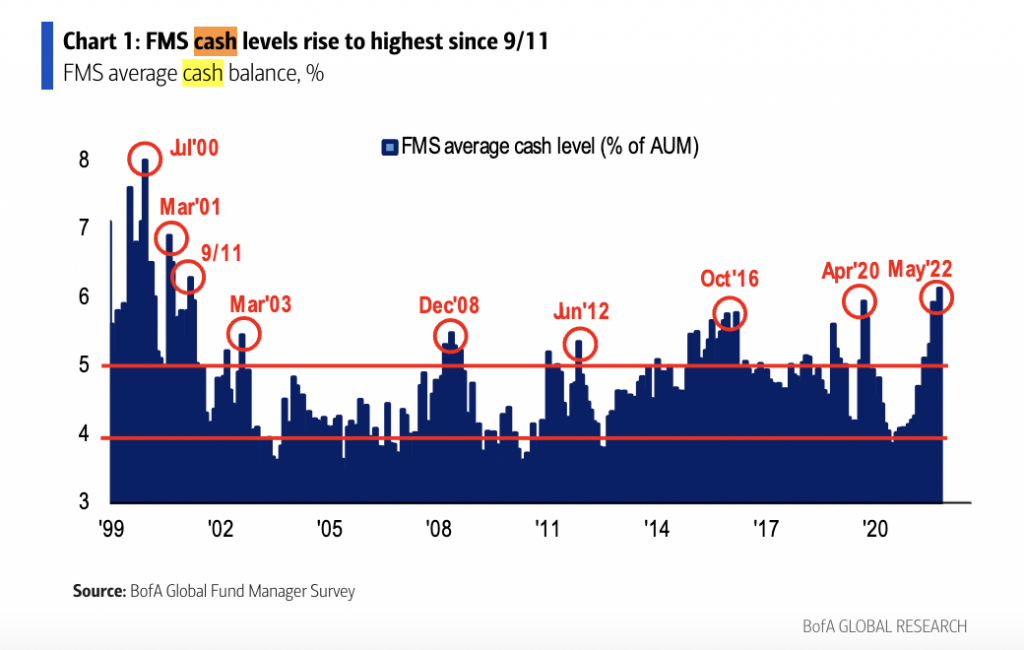- Investors have boosted cash holdings to the highest level since September 2001, Bank of America said Tuesday.
- The "extremely bearish" fund managers survey showed stagflation fears have increased.
- The top tail risk for markets is hawkish central banks, the survey showed.
Investors are piling up cash as they worry that economic growth is stalling while inflation hangs around at 40-year highs, Bank of America said Tuesday.
Cash levels reached 6.1% in May, the highest level since September 2001, rising from 5.5% in the previous month, the investment bank said in a report outlining findings from its latest fund managers survey.
The "extremely bearish" survey showed investors' increasing appetite for cash tracked alongside their rising fears about stagflation, an economic condition characterized by stifled growth alongside high inflation and high unemployment. Stagflation fears at 77% were at their strongest since August 2008, up from 66% in the previous month.
Consumer price inflation in the world's largest economy was 8.3% in April, slightly slower than March's 8.5% rate which marked a 41-year high. Gross domestic product in the first quarter of 2022 shrank by 1.4%.
While the government's latest inflation report suggested consumer-level prices could have peaked last month, investors continue to expect the Federal Reserve will keep raising interest rates to cool demand and bring down inflation. Investors also see a risk that the economy will contract in the face of fast and large rate hikes that kick up borrowing costs.
The survey showed May's top tail risk for the market was hawkish central banks, with a 31% reading coming as monetary policy makers confront hot inflation and growth concerns.
The bank's Bull & Bear Indicator at 2.0 was at a contrarian buy level. What's missing, however, is the "full capitulation piece" as investors still expect rate hikes and not cuts, said Michael Hartnett, Bank of America's chief investment strategist, in the May survey note.
Stocks are "prone to imminent bear rally but ultimate lows not yet reached," he wrote.
The S&P 500 has dropped about 15% so far this year, in part as high-growth technology stocks have been battered by worries about rate hikes. The equity market is seeing the biggest tech "short" since Aug 2006, said BofA.


